Private school pupils who wrote the National Senior Certificate (NSC) through the Independent Examinations Board (IEB) achieved a commendable 98.46% pass rate in the 2023 exams.
This figure represents a slight improvement from the 98.42% pass rate recorded in 2022.
YOU MAY ALSO LIKE: Police Detective In Court For ‘Killing His Wife And Her Mom’
Out of the candidates who passed the exams, at least 88.59% attained university entrance, albeit a decline from the 89.32% in 2022.
Additionally, 8.31% qualified for entry to diploma study, compared to 7.52% in 2022. Similarly, 1.57% achieved entry for study at the higher certificate level, which remained consistent with the previous year.
The IEB expressed satisfaction that the 2023 exams were conducted without any irregularities that could have compromised the integrity of the examination process.
A total of 15,180 candidates, consisting of 13,967 full-time and 1,213 part-time candidates, sat for the exams. This number reflects an increase from the 12,580 candidates in 2022.
In the past academic year, the IEB registered 17 new schools, with 12 being traditional brick and mortar schools and the remaining five being online providers.
The IEB CEO, Confidence Dikgole, lauded the impressive performance of the pupils and attributed it to their dedication and the support of the teaching community.
However, Dikgole acknowledged the challenges faced by the learners. He emphasized the need to shift the focus from a pass-rate obsessed lens of competition and instead view success in a different light.
Dikgole highlighted the tremendous pressure exerted on learners by society, which often leads to escalating mental health issues and affects their ability to perform at their best in high-stakes examinations.
According to Dikgole, mental wellbeing is directly linked to the stress society places on young people to achieve top results and secure spots in prestigious tertiary institutions.
This pressure is a global issue, not unique to the South African context. Research also indicates a correlation between a learner’s independence and their overall wellbeing.
To alleviate the pressure on pupils, Dikgole emphasized the importance of redefining success.
He urged schools to focus on nurturing confident, courageous, and independent young individuals, as these qualities are directly linked to wellbeing and ultimately, their ability to achieve and succeed.
Dikgole also highlighted the role of parents in this journey, noting that some have become either disengaged or overly protective, which can be detrimental to their children’s wellbeing and success.
He emphasized the need for learners to understand that the world of education does not end after matric. There are numerous educational pathways, not all of which necessarily lead to a university degree, that can unlock their talents and enthusiasm in fields that captivate their interests.
YOU MAY ALSO LIKE: KZN Grade R Learner Goes Missing On First Day Of School
Ultimately, Dikgole called for a shift away from the obsession with pass rates and competition, encouraging both educators and learners to view the success of their achievements through a different lens.
By embracing a broader perspective, learners can explore diverse opportunities and celebrate their accomplishments in ways that align with their unique strengths and interests.










